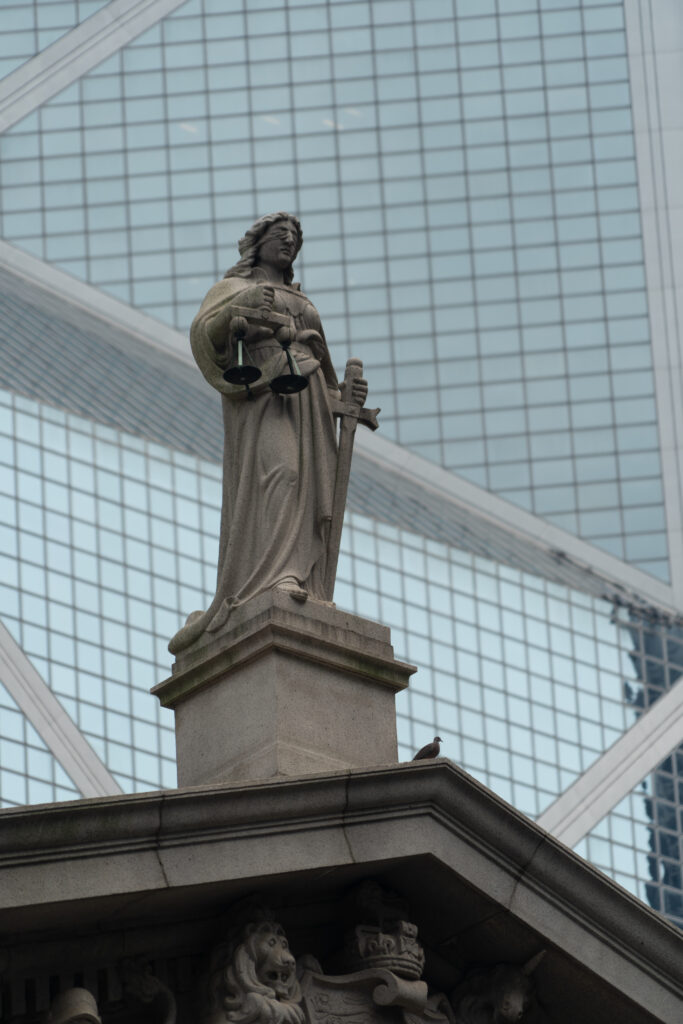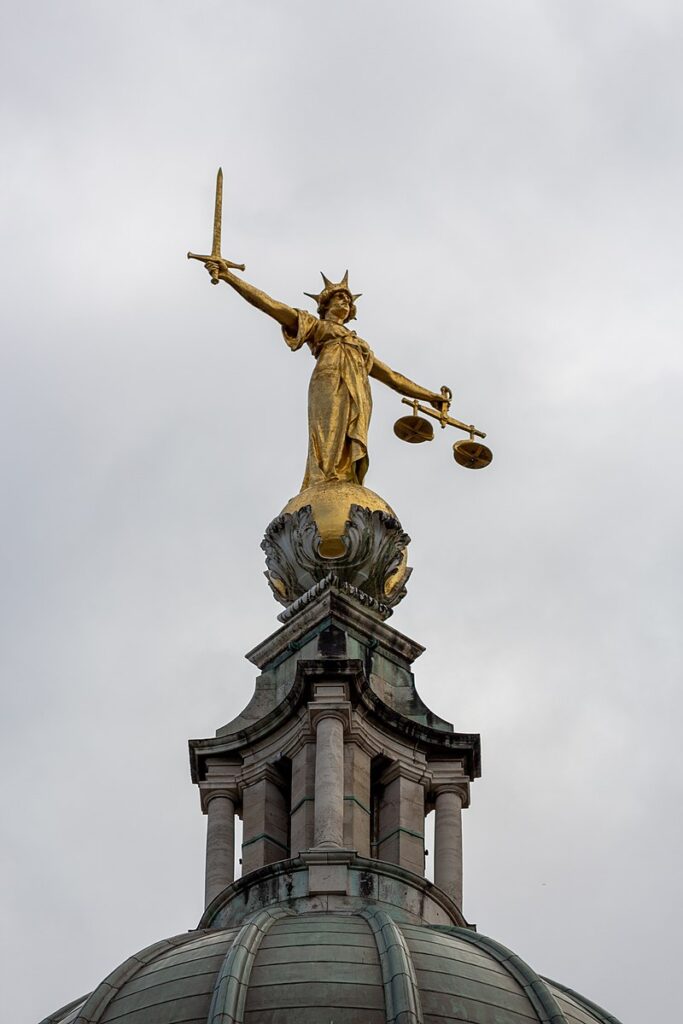These two photographs show the Statue of Lady Justice in the London Old Bailey and the Hong Kong Court of Final Appeal. Lady Justice represents fair, equal and impartial treatment under law.

Photo by : Stephen Yeong
Date : 8 Sep 2019

Photo by : The wub
Date : 10 September 2022
Photo Source : Wikimedia Commons
The Court of Final Appeal in Hong Kong formerly housed the Old Supreme Court as well as the Legislative Council offices. It was designed by the British architects Aston Webb and Ingress Bell, who were also responsible for the eastern façade of Buckingham Palace and the Cromwell Road frontage of the V&A Museum in London. In 1997, the Court of Final Appeal replaced Privy Council in London after the sovereignty handover to China.
The two British architects have not only brought the significant aesthetic of architecture to this British colonial city but also the fair spirit of the law to Hong Kong. In the colonial age, the running of Hong Kong was based on the “rule of law”. The development of Hong Kong’s politics and economy was underpinned by the judicial independence and rule-by law under a government structure with separation of powers. The people have confidence and trust in the judiciary system to protect their rights fairly.
Before the handover of Hong Kong from the British government to the communist People’s Republic of China in 1997, the Sino-British Joint Declaration was signed in 1984, which stipulated the continuity of judicial independence and rule-of-law, and Hong Kong’s way of life. The international document also stresses “one country two systems” and Hong Kong people running Hong Kong will be implemented immediately after its handover. However, the promises in the Joint Declaration have been patently broken by the Chinese government.
For instance, in January 2021, 54 pro-democracy activists were arrested under the national security law. They have been officially charged with a conspiracy to commit subversion under the law. International human rights bodies and experts have robustly criticized that subversion and other crimes established by Hong Kong’s National Security Law, imposed by the Chinese government in 2020, are excessively broad and arbitrarily exercised. The Law encompasses the peaceful exercise of human rights that are part and parcel of Hong Kong’s de facto constitution, the Basic Law. These rights are protected under the International Covenant on Civil and Political Rights, which was incorporated into Hong Kong’s legal framework before 1997.
More recently, in March, 2023, the UN Committee on Economic, Social and Cultural Rights publicly stated that the sweeping National Security Law “has de facto abolished” the city’s judicial independence.
